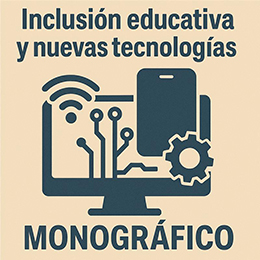Social media in Primary Education: knowledge and use by participating teachers in a training environment
DOI:
https://doi.org/10.51302/tce.2015.31Keywords:
social networking, teacher training, Primary Education, ICTAbstract
In recent years, the use of social networks has grown to currently become important communication tools. In school education it is possible to take profits to the potential of social networks to work with students of different educational stages several curricular contents. At the same time, pupils can develop skills to use social networks properly. In the present study we assessed the degree of knowledge about social networks and the kind of use of a sample of Primary teachers. Furthermore, we compare teachers’ perception of utility and their disposition to use social networks after a training process. The majority of the participants consider social networks as useful or very useful. Nevertheless they have deeper knowledge of common social networks than of specific educational networks. Additionally, they seem to be unconscious of the characteristics and possibilities of the later. After training, the teachers increased their perception of utility and their disposition to incorporate social networks to their educational activities.
Downloads
References
Carter, H. L.; Foulger, T. S y Ewbank, A. D. [2008]: «Have you googled your teacher lately? Teachers use of social networking sites», Phi Delta Kappa, 89 (9), págs. 681-686.
Coll, C. [2008]: Psicología de la educación virtual, Madrid, Morata.
Coll, C. y Martí, E. [2002]: «La educación escolar y las nuevas tecnologías de la información y la comunicación», C. Coll, J. Palacios y Á. Marchesi, Desarrollo psicológico y educación 2. Psicología de la educación escolar, págs. 623-651, Madrid, Alianza.
Cubillo, M. D. y Torres, J. J. [2013]: «¿Mejoran las TIC los resultados académicos de los estudiantes españoles?», Extoikos, 9, págs. 51-58.
De Haro, J. J. [2010]: Redes sociales para la educación, Madrid, Anaya.
INTEF [2013]: Encuesta redes sociales y docentes, Ministerio de Educación, Cultura y Deporte.
Judd, T. [2014]: «Making sense of multitasking: the role of Facebook», Computers and Education, 70, págs. 194-202.
Junco, R. [2012]: «In-class multitasking and academic performance», Computers and Human Behaviour, 28 (6), págs. 2.236-2.243.
Kirschner, P. y Karpinski, A. [2010]: «Facebook® and academic performance», Computers and Human Behaviour, 28 (6), págs. 1.237-1.245.
León, O. y Montero, I. [2004]: Métodos de investigación en psicología y educación, Madrid, McGrawHill.
LOE [2006]: Ley Orgánica 2/2006, de 3 de mayo. Boletín Oficial del Estado, núm. 106, 2006, 4 de mayo.
LOMCE [2013]: Ley Orgánica 8/2013, de 9 de diciembre. Boletín Oficial del Estado, núm. 295, 2013, 10 de diciembre.
Roblyer, M.; McDaniel, M.; Webb, M.; Herman, J. y Witty, J. [2010]: «Findings on Facebook in higher education: a comparison of college faculty and student uses and perceptions of social networking sites», The Internet and Higher Education, 13 (3), págs. 134-140.
Downloads
Published
How to Cite
Issue
Section
License
Copyright (c) 2015 Bruno Moratón Cano, María Luna Chao, Sonia J. Romero Martínez

This work is licensed under a Creative Commons Attribution-NonCommercial-NoDerivatives 4.0 International License.


























